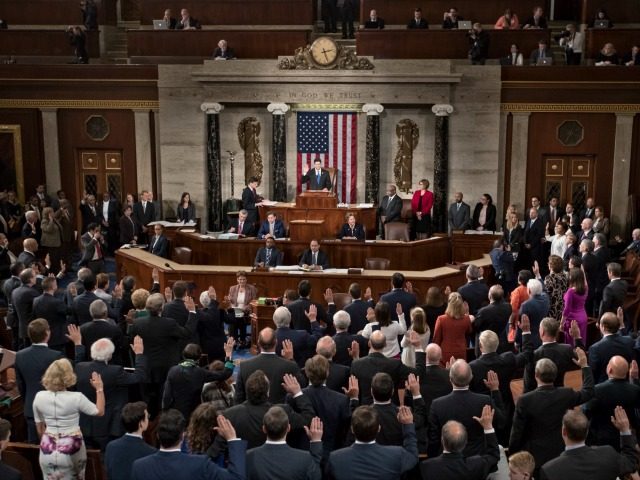Two U.S. Congressmen from both sides of the political aisle have come together to call for a more rigorous enforcement of the Iran deal a year after it went into effect.
Rep. Ed Royce (R-Ca) and Rep. Eliot Engel (D-NY) on Wednesday laid out their views of how the US should conduct its relations with the Islamic republic during a panel discussion on Capitol Hill organized by The Israel Project (TIP).
According to a report on the panel in the Algemeiner, Royce, who serves as chairman of the House Committee on Foreign Affairs, said that US President Donald Trump’s White House should instruct the Treasury Department to put Iran “on notice” with sanctions such as barring global banks from doing deals in US dollars with Iran if it repeats acts like the weekend’s ballistic missile test.
Engel, the ranking Democratic member of the committee Royce heads, said, “We need to make sure they [the Iranians] live up to their obligations under the JCPOA. … We have to be smart about it and hold their feet to the fire. We must never, never trust them.”
“Iran needs to suffer consequences for its dangerous behavior,” he added.
The Democratic congressman said Iran is “going to keep testing us. They’re going to be like children … and I think we should slam the door, be firm with them and make them understand that we’re not going to put up with their nonsense.”
He continued by saying that foreign policy should be “bipartisan, wherever possible. We will be outspoken [against Iran] and we will do it on a bipartisan basis.”
Royce said that the US should conduct a “broad review” of its Iran policy once the new secretary of state — Rex Tillerson — takes office.
“I think we should be increasing human rights designations on Iran,” Royce said. “I think we should be tightening the sanctions against the IRGC [Iran Revolutionary Guard Corps]. I think we respond to Iran’s ballistic missile production demonstrably … [and] begin to rebuild international sanctions on Iran.”
Royce added that the US should continue to “rebuild the consensus that the regime is a bad actor, so that means doing more to highlight what’s going on internally in Iran, which is a human rights nightmare.”
He called for direct appeals to be made to Iranian citizens with the ultimate goal of prompting them to overthrow the current authoritarian regime.
“We can’t sit by another eight years without using the opportunity to reach the people in Iran with … real information about the malfeasance, corruption and everything else that goes on in Iran,” said Royce. “[The ayatollah’s regime] is in opposition to the entire culture and history of the Persian people.”
Engel noted that maintaining the US’s close relations with Israel is “one of the ways we can show Iran we mean business.”
He added that the US should do all in its power to encourage the quietly-improving ties between Israel and Sunni states in the Middle East.
“I think we need to do everything we can to facilitate [this] … and show Iran that the Sunni Arab-Israeli-United States alignment is something that it has to be concerned about.”
“America has to lead,” Engel concluded his vision of American foreign policy. “When we don’t lead, we see what happens in Syria. When we don’t lead, things spiral out of control and it makes it harder for us. When we don’t lead, people around the world begin to question where is the American resolve. So I believe we need to lead, because it is in our national interest. It is important. You can’t say, ‘Well, it’s on the other side of the world, so we’re going to only worry about what happens here.’ The world is shrinking and without American leadership it’s going to shrink in a way we don’t like.”

COMMENTS
Please let us know if you're having issues with commenting.